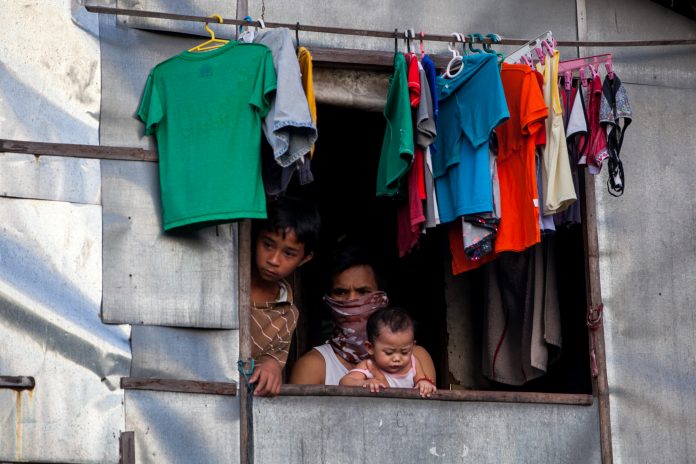The readings for this Sunday present a powerful reflection on wisdom, wealth, and the demands of true discipleship. At the heart of these scriptures is a call to reexamine our values, especially in a world where material success and power often define us. The challenge we encounter today is not just personal but societal—how do we, as a community of faith, prioritize wisdom over wealth, and justice over self-interest?
In Wisdom 7:7-11, Solomon prays for wisdom, choosing it over wealth, power, and honor. This reading sets the tone for the Gospel, where Jesus invites the rich man to make a similar choice: to let go of worldly possessions in exchange for the lasting treasure of God’s Kingdom.
Psalm 90 deepens this reflection. The psalmist prays for wisdom to live life with purpose, focusing on the things that matter—our relationship with God and the works of our hands that last beyond this life. This resonates deeply with the Gospel message: life is not about accumulating wealth, but about discerning how we can live meaningfully in God’s presence.
Hebrews 4:12-13 describes the Word of God as “sharper than a two-edged sword,” revealing the truth about our hearts. It pierces through our intentions and desires, exposing what we might try to hide—even from ourselves.
As we reflect on the Gospel, Mark 10:17-27, we see how the rich man, despite his good intentions, is unable to fully embrace discipleship because of his attachment to wealth. Jesus’ teaching here goes beyond financial wealth—it speaks to anything we place above God in our lives: power, status, comfort, or even our own security. The Word of God challenges us in the same way, inviting us to confront what holds us back from following Christ fully and championing his mission of alleviating the condition of the poor and marginalized in society. The key to eternal life, Jesus teaches, is not found in keeping rules alone but in a heart fully surrendered to God’s plan.
This Gospel has profound implications for the political and social realities in the Philippines. The rich man’s attachment to his wealth reflects how many leaders and powerful individuals in society cling to their influence and resources, often at the expense of the poor. In the Philippines, issues like corruption, political dynasties, state-sponsored violence to quell constructive dialogue for societal reforms, economic inequality, and the vast gap between the rich and the marginalized mirror the rich man’s struggle.
The Gospel Call
Call to Heed the Cry of the Poor: The encounter between Jesus and the rich man echoes the cries of the poor in the Philippines today. The Gospel compels us to examine how we, as a community, can work toward justice. This begins with personal charity and is fulfilled through advocacy for systemic change. Following Jesus means answering the call to create a society where the least among us are prioritized through revolutionary reforms.
Call to Combat Economic Disparity and Social Injustice: The rich man’s sadness after being asked to give up his wealth reflects the difficulty of change in a society where the poor remain marginalized while the wealthy enjoy privilege. The Gospel calls all of us to detach from selfish ways of life and seek the common good. In the Philippines, where many suffer due to economic disparity, we are challenged to act in solidarity with the marginalized and ensure that economic and social structures uplift the poor rather than deepen inequality. In this instance, indifference, apathy, inaction, and playing it safe are sins of omission—mortal sins.
Call to Leaders for Selfless Service: Just as Jesus invited the rich man to give up his wealth for the good of others, so too must political leaders be willing to put aside personal gain and serve the people they govern. Too often, we see leaders clinging to power, enriching themselves, and neglecting the common good. The Gospel calls these leaders to a deeper responsibility—one that prioritizes justice, equity, and the dignity of all citizens, especially the poor. If they do not heed this call, it becomes the moral responsibility of the citizens to remove them from their positions or prevent them from taking political office by electing leaders who will genuinely serve the interests of the marginalized and the common good. This means doing away with the patronage culture in politics.
Today’s Gospel is not merely a personal challenge but a societal one. It calls us to reexamine our attachments—whether to wealth, power, or security—and invites us to embrace a life of radical discipleship. In the context of the Philippines, this means advocating for a more just and equitable society, where leaders serve the common good and wealth is shared for the benefit of all. Let us heed the call of Christ, who invites us to follow Him by living lives of generosity, justice, and compassion, especially toward the poor and marginalized, who make up the great majority of Filipinos.
Gospel reflection of Fr. Domingo Barawid, MI for the 28th Sunday in Ordinary Time.
Balik-Tanaw is a group blog of the Promotion of Church People’s Response (PCPR). The Lectionary Gospel reflection is an invitation for meditation, contemplation, and action.









